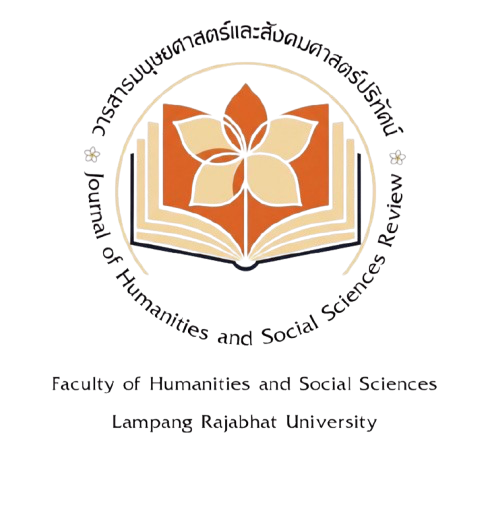Legal Education in Thailand: Challenges and Opportunities in the Twenty - First Century
Keywords:
Legal Education, Technology, Artificial Intelligence, ChatGPTAbstract
This article examines the present situation of legal education, taking place in various law schools in Thailand. In addition, the article considers the impact of digital technologies on legal education in the twenty-first century. This article also focuses on the challenges and issues of “disruptive technology” arising from artificial intelligence technology in the context of teaching methods and students practical experience in legal education. It is found that the digitalisation of the legal education system, namely, fast-growing innovation technology such as ChatGPT and its influence has brought new methods and approaches for the teaching-learning process. Hence, artificial intelligence technology provides an opportunity to revitalise and modernise legal education. The article concludes that the emerging presence of digital technologies in legal education is inescapable as the era of legal technology or “Legal Tech” is becoming a crucial part of modern lawyers. Legal Tech education should take part at university level to instill in young lawyers a taste of progressive technologies from the student’s life. As a result, it is important to prepare law students for those changes by encouraging students’ creativity and their communicative skills.
References
ชนาธิป ชินะนาวิน. (2557). รายงานการวิจัยเรื่องการสอนกฎหมาย: ศึกษาเปรียบเทียบกับวิธีการสอนแบบบรรยาย การสอนแบบถามตอบ และการสอนแบบทบทวนและถาม. วารสารดุษฎีบัณฑิตทางสังคมศาสตร์ (ฉบับมนุษยศาสตร์และสังคมศาสตร์), 4(2), 69.
ช้องนาง วิพุธานุพงษ์. (2021, กรกฎาคม). การเรียนการสอนกฎหมายในยุคดิจิทัล. สืบค้นจาก http://dspace.spu.ac.th/handle/123456789/7733
เทคโนโลยี AI คืออะไร? รู้จักกับ 3 ประเภทของ AI ที่เพิ่มขีดความสามารถให้กับธุรกิจ. (2564, 1 ธันวาคม). สืบค้นจาก https:// aigencorp.com/3-types-of-ai-for-business
นิติศาสตร์คืออะไร?. (2561, กรกฎาคม). สืบค้นจาก https:// thesis.in.th/assets/pdf blog/2018/07/thesis_1532440716.pdf
ปัญญาประดิษฐ์ในการให้บริการของภาครัฐ. (2564, 22 พฤษภาคม). สืบค้นจากhttps:// www.etda.or.th > Articles
พระมหาสายัณห์ เปมสีโล. (2564). การเรียนการสอนแบบออนไลน์ในระดับอุดมศึกษาภายใต้สถานการณ์แพร่ระบาดของไวรัส COVID-19. Journal of Modern Learning Development. 6(6), 357.
พิเศษ เสตเสถียร. (2566, 24 เมษายน). อาจารย์กฎหมายกับ ChatGPT. สืบค้นจาก https://www.bangkokbiznews.com/tech/innovation/1064630
ภวิสานัชช์ ศรศิริวงศ์. (2564). ห้องเรียนเสมือนจริง. วารสารศึกษาศาสตร์ มหาวิทยาลัยศิลปากร. 19(2), 81.
ภรณี เกราะแก้ว. (2566). อนาคตนักกฎหมาย: อะไรคือสิ่งที่นักศึกษากฎหมายอาจต้องเผชิญในโลกของ AI. วารสารนิติศาสตร์ มหาวิทยาลัยแม่ฟ้าหลวง. 6(2), 130.
สรวิศ ลิมปรังษี. (2560). ภาษาอังกฤษนักกฎหมาย (legal English) - การเบิกความของพยาน (Witness testimony). ดุลพาห, 64(2), 230-231.
สุมาพร (ศรีสุนทร) มานะสันต์. (2566, 28 กุมภาพันธ์). ChatGPT: กฎหมาย AI และอนาคต (ภาคแรก).สืบค้นจาก http://www.bangkokbiznews.com
สำนักงานนิเทศ สำนักงานปลัดกระทรวงสาธารณสุข. (2564, 16 กุมภาพันธ์). มาตรการทางสาธารณสุข เรื่องการเว้นระยะห่างจากสังคม (Social distancing). สืบค้นจาก https://pr.moph.go.th > detail
อาจารย์นิติหวั่น นักศึกษาใช้ “ChatGPT”ช่วยเขียนเอกสารทางกฎหมาย. (2566, 14 มกราคม). สืบค้นจากhttps://www.posttoday/com/international-news/689476
Chaincone, C. (2023, November 28). ChatGPT for Legal Education: A New Frontier in Law School
Training. Retrieved from https://www.linkedin.com/pulse/chatgpt-legal-education-new -frontier-law-school-christ-chaincone-lbf5se?trk=article-ssr-fronten-pulse_more-articles_related-content-
Connell, W. & Hamlin, M. (2019). Artificial Intelligence and Legal Education. The Computer & Internet Lawyer. 36(5), 14-19.
Delbruck, J. (1992). The Right to Education as an International Human Rights. [Articles by Maurce Faculty] https://repository.law.indiana.edu/facpub/2824.
Hu, T. & Lu, H. (2019) Study on the Influence of Artificial Intelligence on Legal Profession. Advance in Economics, Business and Management Research, 110, 964-968.
Law School Quotes. (n.d.) Retrieved from https://www.goodreads.com>quotes>tag>law-school?
Palkova, K. & Agapova, O. (2021). Legal Tech in Legal Education: Global Perspectives and Challenges from The Latvian – Ukrainian Experience. Proceedings of the International Scientific Conference, 5, 414-417.
Singh, A. & Singh, J. (2021). Challenges of Legal Education in the 21st Century. International Journal of Law Management & Humanities, 4(2), 2580.
UNESCO. (2019). Right to Education Initiative. Paris: UNESCO.
World Health Organisation. (n.d.). Coronavirus disease 2019 (COVID-19) Pandemic. Retrieved from https://www.who.int/europe/emergencies/situations/covid-19

Downloads
Published
How to Cite
Issue
Section
License
Copyright (c) 2025 Journal of Humanities and Social Sciences Review, Lampang Rajabhat University

This work is licensed under a Creative Commons Attribution-NonCommercial-NoDerivatives 4.0 International License.
This article is published under a Creative Commons Attribution-NonCommercial-NoDerivatives 4.0 International License (CC BY-NC-ND 4.0), which allows others to share the article with proper attribution to the authors and prohibits commercial use or modification. For any other reuse or republication, permission from the journal and the authors is required.


